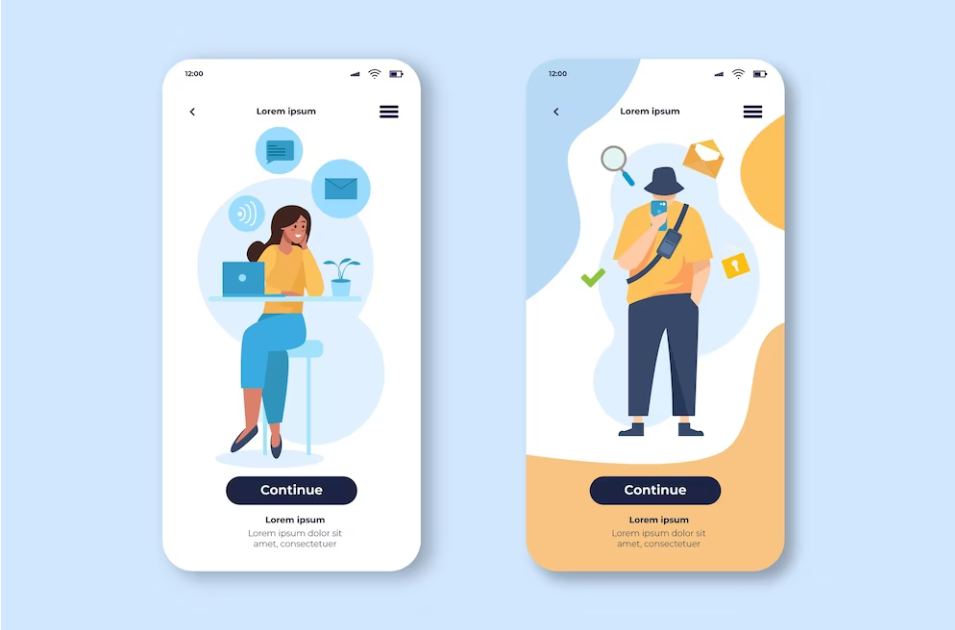Native vs. Hybrid Apps: Choose the Best Business App Strategy | Stoke Apps
In today’s technology-driven world, mobile applications have become an essential part of businesses to reach a broader audience, enhance their brand value and increase profits. While developing a mobile application, one of the most significant decisions is choosing the best app development strategy that fits the business needs. Two popular app development approaches are Native and Hybrid apps.
In this article, we will discuss the differences between Native and Hybrid apps and help businesses choose the best development strategy for maximum profit.
Introduction
Mobile apps have become an essential part of businesses, and with the increasing demand for mobile applications, there are many app development strategies available. Two popular app development strategies are Native and Hybrid apps. Native apps are developed specifically for a particular platform, whereas Hybrid apps can run on multiple platforms. Native apps offer better performance and user experience, but Hybrid apps are more cost-effective and easier to maintain.

In this article, we will discuss the differences between Native and Hybrid apps, and which app development strategy is best suited for businesses to maximize profit.
What are Native Apps?
Native apps are developed for a specific platform, such as iOS or Android, and are written in a programming language native to that platform. Native apps have better performance, faster response time, and a better user experience because they can access the device’s hardware, software, and features.
These apps are developed using platform-specific development tools such as Xcode for iOS and Android Studio for Android and designed for a specific platform, and therefore, they can take full advantage of the platform’s capabilities.
What are Hybrid Apps?
Hybrid apps are developed using a combination of web technologies such as HTML, CSS, and JavaScript, and can run on multiple platforms. These apps are developed using a single codebase and can be deployed on multiple platforms such as iOS, Android, and Windows.
Hybrid apps use a native wrapper, which is essentially a browser view that renders the web content. Hybrid apps can access the device’s hardware, software, and features using plugins and offer cost-effective development, easier maintenance, and quick deployment on multiple platforms.

Differences between Native and Hybrid Apps
There are several differences between Native and Hybrid apps, including development time and cost, user experience and performance, maintenance and upgrades, cross-platform compatibility, monetization opportunities, and security and data protection.
Development Time and Cost
Native apps require more development time and cost compared to Hybrid apps.
Developing a Native app requires hiring developers with platform-specific programming language expertise,
and the development time can be longer due to the need for platform-specific coding.
Hybrid apps require less development time and cost because they can use a single codebase
that can be deployed on multiple platforms.
User Experience and Performance
Native apps offer a better user experience and performance compared to Hybrid apps. Native apps are designed specifically for a platform, and therefore, they can take full advantage of the platform’s capabilities, resulting in faster response time and better performance. Hybrid apps use a native wrapper that renders web content, resulting in slower response time and lower performance compared to Native apps.
Maintenance and Upgrades
Hybrid apps are easier to maintain and upgrade compared to Native apps.
With Hybrid apps, developers can make changes to a single codebase that can be deployed
on multiple platforms, resulting in easier maintenance and upgrades. With Native apps, developers must make platform-specific changes, which can result in longer development time and higher costs for maintenance and upgrades.
Cross-Platform Compatibility
Hybrid apps offer cross-platform compatibility, which means they can be deployed on multiple platforms.
such as iOS, Android, and Windows using a single codebase. Native apps are developed specifically for a platform and, as a result, cannot be deployed on multiple platforms without significant modifications.
Monetization Opportunities
Both Native and Hybrid apps offer monetization opportunities, such as in-app purchases, ads, and subscriptions. However, Native apps offer more monetization opportunities, such as paid apps and in-app advertising.
Security and Data Protection
Native apps offer better security and data protection compared to Hybrid apps. Developed using platform-specific programming languages and development tools, Native apps offer more security features and capabilities compared to web technologies used in Hybrid apps.

Pros and Cons of Native App Development
Pros
- High Performance: Developed using platform-specific programming languages and tools, Native apps offer better performance compared to Hybrid apps..
- Better User Experience: Designed specifically for the platform, Native apps offer a better user experience compared to Hybrid apps..
- Better Security: Native apps offer better security and data protection compared to Hybrid apps, as they use platform-specific security features and capabilities.
- Better Monetization Opportunities: Native apps offer more monetization opportunities such as paid apps, in-app purchases, and in-app advertising.
Cons
- Longer Development Time: Native app development takes longer than Hybrid app development due to the need to develop separate codebases for different platforms.
- Higher Cost: Native app development is more expensive than Hybrid app development due to the longer development time and the need for platform-specific development tools.
- Harder to Maintain and Update: Native apps require separate updates and maintenance for each platform, which can result in higher long-term costs.
Pros and Cons of Hybrid App Development
Pros
- Cross-Platform Compatibility: Deploying hybrid apps on multiple platforms using a single codebase can save time and development costs..
- Cost-Effective: Hybrid app development is generally more cost-effective than Native app development due to the ability to use a single codebase for multiple platforms.
- Easier to Maintain and Update: A single codebase can be used for multiple platforms with these apps, which results in fewer updates and maintenance required compared to Native apps.
Cons
- Lower Performance: Hybrid apps offer lower performance compared to Native apps due to the use of web technologies.
- Limited User Experience: The platform is not specifically designed for these apps, which may result in a limited user experience compared to Native apps.
- Limited Monetization Opportunities: Hybrid apps offer fewer monetization opportunities compared to Native apps, such as paid apps and in-app advertising.
Which Development Strategy Should You Choose?
When choosing an app development strategy, it’s important to consider several factors to ensure
that the app meets the needs of the business and its target audience. Here are some factors to consider when choosing an app development strategy:
App Performance
The app’s performance is critical to its success. If the app requires high performance and fast loading times, then Native app development may be the best option, as it provides better performance than Hybrid app development.
User Experience
The user experience of the app is essential to its success. If the app needs to provide an excellent user experience, then Native app development may be the best option, as it allows for more customized and optimized experiences for each platform.
Development Time and Cost
The development time and cost of the app are also essential factors to consider. If the business has a limited budget and a tight timeline, then Hybrid app development may be a better option, as it allows for quicker development and lower costs.
Maintenance and Updates
Maintenance and updates are essential for the long-term success of the app. If the app requires frequent updates and maintenance, then Hybrid app development may be a better option, as it allows for easier maintenance and updates across multiple platforms.
Monetization Opportunities
The app’s monetization strategy is also an essential factor to consider. If the app requires monetization through in-app purchases, in-app advertising, or other methods, then Native app development may be the best option, as it offers more monetization opportunities than Hybrid app development.
Security and Data Protection
Security and data protection are crucial for any app that collects and stores user data. If the app requires high-level security and data protection, then Native app development may be the best option, as it offers more secure platform-specific features and capabilities.

Conclusion
In conclusion, choosing the best app development strategy for businesses depends on several factors
such as development time and cost, user experience and performance, maintenance and upgrades,
cross-platform compatibility, monetization opportunities, and security and data protection.
Native apps offer better performance and user experience but are more expensive and harder to maintain,
while Hybrid apps offer cross-platform compatibility and cost-effective development but offer lower performance and security.
If you have any questions or would like to discuss your app development needs, please don’t hesitate to Contact us. We’re here to help you find the best app development strategy for your business and help you achieve success. Contact us today to schedule a consultation with our expert team.
